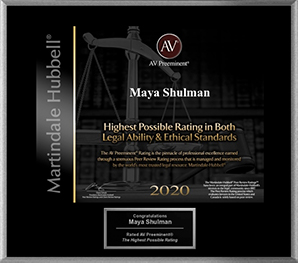
Difference between Conservatorship & Guardianship
Adults are usually adept at making all kinds of health and finance-related decisions. However, there may be a possibility that an adult loses his/her ability to make rational decisions due to various reasons-mental illness or physical ailment. The principles of guardianship and conservatorship come handy in such situations.
Conservatorship
In the state of California, conservatorship is described as a legislative principle that allows one individual to attain legal control over another individual. The person over whom control is exercised is usually a close family member. In most cases, a person requires conservatorship when he/she has aged and has lost the physical and mental ability to care for their personal affairs. The court usually appoints such roles only in the case of minor children or elderly people suffering from something as critical as dementia or Alzheimer’s or other mental disorders.
There are basically two kinds of conservatorships in California:
Conservator for a person: In this role, a conservator is required to handle the personal affairs of an individual. These include attending to their fundamental care needs in order to maintain healthy living standards and taking health-related decisions.
Conservator for an estate: As the conservator for an estate, the appointed person is required to handle the financial affairs of the now incapable individual. This includes the management of his/her debts, income and other important financial assets. The court makes it compulsory for the conservator to file all financial reports regularly while performing this role.
Guardianship
Most people assume that guardianship is applicable to children only. But there are some cases in which this principle might apply to disabled adults or senior people, who are incapable of caring for their personal well-being. When it comes to children, a guardian will typically care for a child till he/she turns 18. Alternatively, the guardianship might be terminated with the child returning to the parents. There are multiple cases in which grandparents, close or extended relatives assume the role of guardians if parents are deemed as unfit, or are unavailable or incapacitated for parenting by the court.
If there is no close person or relative available to take care of the child, the court may appoint someone known as a ‘professional guardian’ to play the important role. An agency might also be given the task of caring for the child. The guardian is usually given the authority to take all decisions related to education, overall care, safety, health and support.
Guardians are not allowed to take any decisions related to basic rights including marrying and voting. It is at the discretion of the court to order partial or full guardianship. The decision usually depends on each individual situation. In partial guardianship, the guardian can only take decisions related to specific needs.
In both guardianship and conservatorship, the court appoints a deputy decision-maker for the person who is now incapable of managing his/her personal affairs.
Effects of Guardianship and Conservatorship
It is clear that both these principles involve the transfer of some powers from the conservatee/minor to the conservator or guardian. Some of these powers include taking decisions in the area of selling, transferring or conveying property; delegating power, making gifts; incurring debts; performing the role of a fiduciary; waiving rights.
In a conservatorship scenario, it is possible for the court to alter the transferred powers if it is convinced that a particular conservatee has required capacity with respect to specific powers.
The key advantage of conservatorship/guardianship is that they are backed by court support and supervision for all decisions. By appointing the supervised conservator or guardian, the Court can ensure the best protection or guarantee of the conservatee/minor’s interests.
SFLG
Maya Shulman, Esq.
Shulman Family Law Group
AVVO







